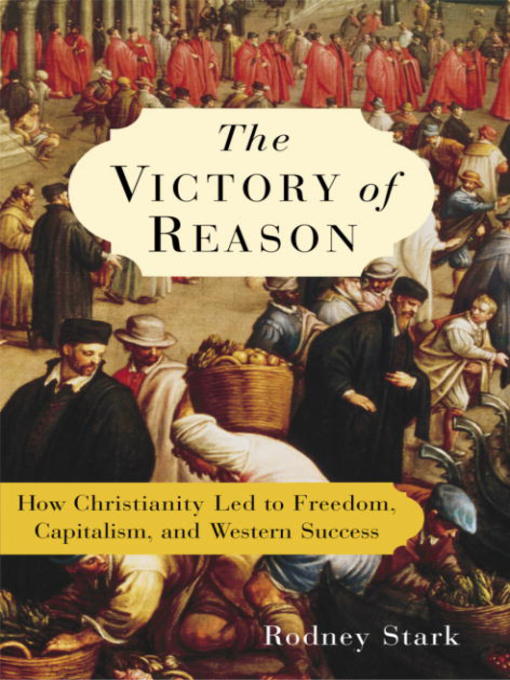
The Victory of Reason
How Christianity Led to Freedom, Capitalism, and Western Success
کتاب های مرتبط
- اطلاعات
- نقد و بررسی
- دیدگاه کاربران
نقد و بررسی

September 12, 2005
It is a commonplace to think of Christianity and rationalism as opposite historical and philosophical forces. In this stimulating and provocative study, Stark (The Rise of Christianity
) demonstrates that elements within Christianity actually gave rise not only to visions of reason and progress but also to the evolution of capitalism. Stark contends that Christianity is a forward-looking religion, evincing faith in progress and in its followers' abilities to understand God over time. Such a future-based rational theology has encouraged the development of technical and organizational advances, such as the monastic estates and universities of the Middle Ages. Stark contends that these developments transformed medieval political philosophy so that democracy developed and thrived in those states, such as northern Italy, that lacked despots and encouraged moral equality. Stark concludes by maintaining that Christianity continues to spread in places like Africa, China and Latin America because of its faith in progress, its rational theology and its emphasis on moral equality. While some historians are likely to question Stark's conclusions, his deftly researched study will force them to imagine a new explanation for the rise of capitalism in Western society.

Starred review from October 1, 2005
At first glance, this book appears to be a retort to geographic theories of societal evolution, of the sort advanced by Jared Diamond's popular " Guns, Germs, and Steel." Rather than patterns of weather and agriculture, Stark argues, Europe's primacy in economic, political, and social progress was due to its embrace of Christianity, which opened a space for reason and hence science-driven technology. Emphasizing the connection between medieval scholasticism, with its notion of theological progress--the logical science of thinking one's way closer to God--and Renaissance capitalism, Stark maintains that Christianity alone embraced reason and logic, and this gave Christian regions a tactical advantage in developing commerce. An argument made with unavoidably broad strokes, its actual targets are Max Weber's notion of the Protestant work ethic and the conventional story that religion was a barrier to be overcome en route to progress. At times approaching the invective, its defiant tone will invigorate readers who feel religion's place in the trajectory of world history is under attack. But the theological side of Stark's argument--that Christianity is fraternally bound to reason--will challenge the very same readers to reexamine their own relationship with reason.(Reprinted with permission of Booklist, copyright 2005, American Library Association.)

























دیدگاه کاربران